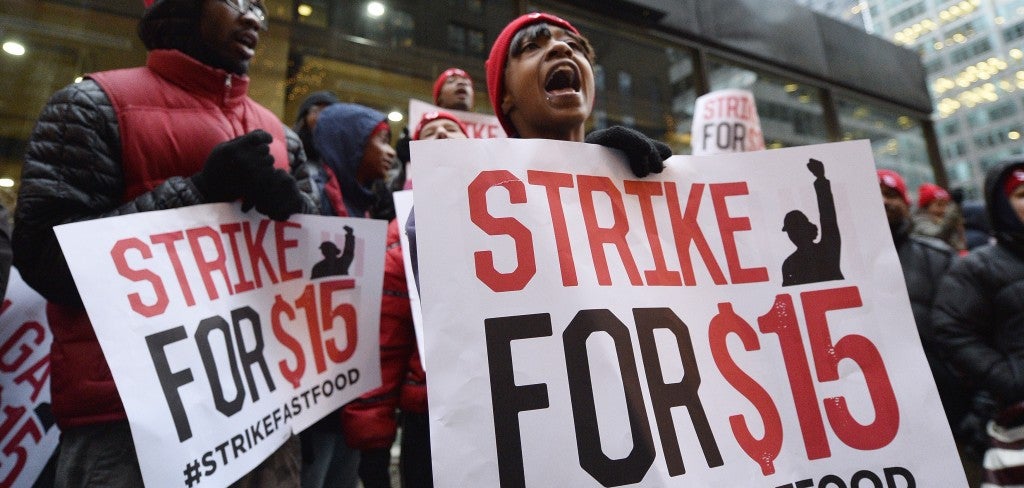President Obama said in a YouTube interview last month that he wanted to focus, during his last two years as president on helping people get ahead.
“In particular, how can I make sure that folks who are working hard…cannot just survive, but how can they thrive? How can they get ahead?” Obama said.
Many think the answer to helping Americans thrive and get ahead is to increase the minimum wage—and Obama has often talked about his support for hiking it. But it’s a mistake to think hiking the minimum wage will help.
In fact, a hiked minimum wage could harm people, not help them thrive.
The Heritage Foundation’s James Sherk says that raising wages would have a particular impact on the fast food industry, where many low skilled and young workers get their start in a journey to better and higher paying jobs. Sherk states that by raising worker wages, “many fast-food restaurants would respond by restructuring dramatically in order to use less labor.” In other words, there would be fewer jobs as a result of the mandated higher wages—and fewer opportunities for low-skilled and young-workers to be employed.
Recently, McDonald’s, one of the world’s largest fast food chains, has been struggling. Citing fewer customer visits, tough competition and increased expenses, McDonald’s reported decreased sales and decreased operating income for the fourth quarter of 2014. McDonald’s states that “results were impacted by higher selling, general and administrative and other expenses associated with positioning the business for the future.” According to McDonald’s President and CEO Don Thompson, these negative trends are expected to continue into January.
Now, imagine the effect having to pay workers the increased minimum wage the president demanded in his state of the union address would have on McDonald’s.
The president only has to look at McDonald’s restaurants in France to see the impact a higher minimum wage would have. France’s minimum wage is $10.60 an hour. Not surprisingly, every McDonald’s has resorted to using touch screen ordering rather than workers. It simply doesn’t make sense, when minimum wage starts that high, to employ people when machines can do the job.
This is reality. When faced with high operating costs, corporations such as McDonald’s will find ways to cut costs, whether by substituting technology for labor or forgoing improvements and investments in the company’s future.
Companies substituting machines for employees is just one potential outcome of raising the minimum wage.
If companies choose not to eliminate employees, they’ll make up costs in a different way, often by passing the costs to consumers by charging higher prices. Ultimately, top businesses such as McDonald’s operate on thin margins that require efficiency and operational optimization that an artificial wage raise would undermine.
Ultimately passing a minimum wage hike would provide fewer, not more, opportunities to Americans. If Obama wants to see all Americans thrive, he should make sure they have as many opportunities to do so as possible—and stop promoting a minimum wage hike.
